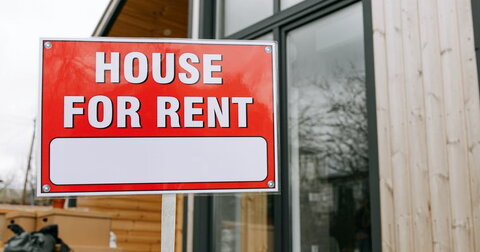Policies In Flux: One Couple’s Tumult With Short Term Rental Restrictions
First there was no ban on their summer rental plan, and then there was
Mike Leong recently purchased a home in Ottawa County, near Holland. He planned to spend part of the summer staying with family and friends in the area while renting out the house. Rental fees would help pay for the costs of buying and renovating it. In January, he began placing ads for summer rentals.
That plan is now in jeopardy, as officials in Park Township, where the home is located, are discussing ways to enforce a ban on rental properties that had been suspended for almost 50 years.
Leong, who is married, thought he had performed due diligence to ensure he could pursue short-term rentals. A licensed real estate agent he worked with, who also owns short-term rental property, believed the practice was permitted and told him that.
But in February Leong received a notice that the short-term rental plans were illegal — and that such rentals had been illegal since Feb. 7, 1974. Mike Leong says other property owners he knows of appeared just as surprised, and they have since formed a group to oppose the local ordinance that officials cite.
The Park Township Board of Trustees issued an official notice March 31 which states:
“The Michigan Supreme Court ruled in 2019, in a case involving Spring Lake Township, which has an ordinance substantially similar to the Park Township Ordinance (as both were drafted by the same law firm), that short term rentals fell within the definition of a hotel or motel, now a dwelling.”
The notice also stated that the township does not allow motels or hotels in residential zoning districts, and since short-term rentals fall into the same category, short-term rentals are not allowed.
Township Supervisor Jim Gerrard, with the approval of other township board members, appointed members to a new Park Township Planning Commission. The commission will recommend whether to retain, repeal, or revise the ordinance. It is also discussing the definition of short-term rentals.
Park Township is not the first local government in the state to attempt to regulate short-term rentals. A fight between some property owners and city officials has riled New Buffalo, a popular vacation destination for people from Illinois. Another municipality in Ottawa County, Spring Lake, halted one homeowner’s use of short-term rentals, even though at the time there was no ordinance preventing it. The township has since restricted short-term rentals.
Since 2017 at least 32 bills related to short-term rentals have been introduced in the Michigan Legislature. Some are permissive, but most authorize local governments to enact restrictions, regulations or taxes on the practice.
In the current session, House Bill 4722 has passed the House and is pending in the Senate. It would prohibit local governments from banning short-term rentals but allow them to create ordinances to regulate advertising and deal with noise, traffic, and nuisance complaints. It would also let them impose inspection regimes.
Michigan Capitol Confidential is the news source produced by the Mackinac Center for Public Policy. Michigan Capitol Confidential reports with a free-market news perspective.

